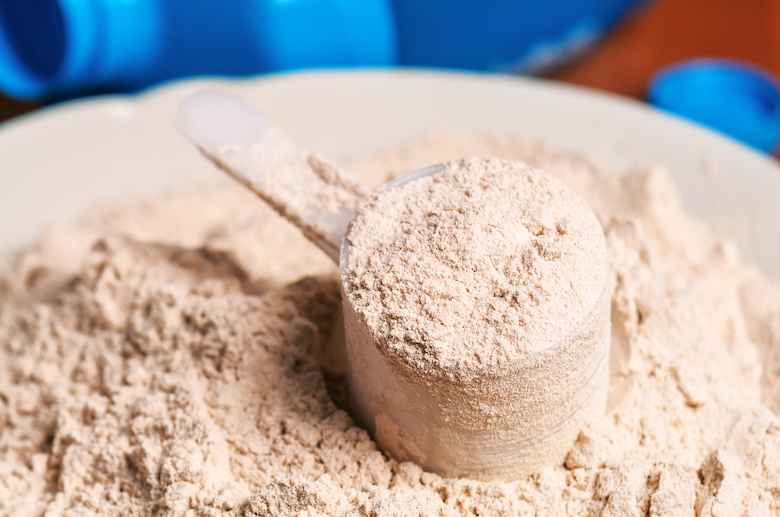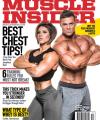Power Eating


Can Vegetarians Build Muscle?
Q: I’m a lacto-ovo vegetarian and I’ve been told it’s impossible to build a great physique eating this way. Is this true?
A: It’s not impossible, but it will take some effort and creativity on your part. A lacto-ovo vegetarian doesn’t eat animal flesh but does consume dairy and egg products, whereas a vegan doesn’t consume any animal products. One key to building a great physique on any diet is to make sure you get plenty of protein—at least one gram per pound of body weight. But don’t eat just any protein; you need to be sure you consume protein that contains all the essential amino acids.
 Essential amino acids cannot be made by the body and therefore must be obtained from the food we eat. The most important essential aminos are the branched-chain amino acids. These are the ones responsible for turning on protein synthesis (i.e., muscle building) and ensuring post-workout repair and recovery. Two great protein options for lacto-ovo vegetarians that contain all the essential amino acids are eggs and whey protein. Eggs are considered a perfect protein. In fact, they’re the gold standard by which all other proteins are measured, due to their high biological value. Whey protein powder also provides all the essential amino acids and has a superior absorption and utilization rate by the body.
Essential amino acids cannot be made by the body and therefore must be obtained from the food we eat. The most important essential aminos are the branched-chain amino acids. These are the ones responsible for turning on protein synthesis (i.e., muscle building) and ensuring post-workout repair and recovery. Two great protein options for lacto-ovo vegetarians that contain all the essential amino acids are eggs and whey protein. Eggs are considered a perfect protein. In fact, they’re the gold standard by which all other proteins are measured, due to their high biological value. Whey protein powder also provides all the essential amino acids and has a superior absorption and utilization rate by the body.
 In fact, just these two protein sources alone can meet the majority of your protein needs. Other protein sources that you may want to consider in your diet are quinoa, lentils, beans, tofu, and soy. The difficult part is that some of these options also contain carbohydrates, so if you’re trying to get super lean, be wise about your choices. In addition to ensuring you get enough protein, you may want to add a few muscle-building supplements to help you develop and maintain your muscle. Creatine, BCAAs, and even glutamine are great options. Creatine is found in red meat, fi sh, and poultry, and is a key compound that aids in the production of adenosine triphosphate (ATP), giving your muscles energy to contract. BCAAs drive protein synthesis and help maintain a positive nitrogen levels in the muscle. Glutamine can aid in muscle recovery and cell volumization. Vegetarians may also be vulnerable to deficiencies of key vitamins and minerals including iron, calcium, and vitamin B12. Good dietary sources of iron include dried fruit, nuts, and tofu, while calcium
is found in many leafy green vegetables and can also be found in fortified tofu. Be sure to take a complete multivitamin to support your nutritional requirements.
In fact, just these two protein sources alone can meet the majority of your protein needs. Other protein sources that you may want to consider in your diet are quinoa, lentils, beans, tofu, and soy. The difficult part is that some of these options also contain carbohydrates, so if you’re trying to get super lean, be wise about your choices. In addition to ensuring you get enough protein, you may want to add a few muscle-building supplements to help you develop and maintain your muscle. Creatine, BCAAs, and even glutamine are great options. Creatine is found in red meat, fi sh, and poultry, and is a key compound that aids in the production of adenosine triphosphate (ATP), giving your muscles energy to contract. BCAAs drive protein synthesis and help maintain a positive nitrogen levels in the muscle. Glutamine can aid in muscle recovery and cell volumization. Vegetarians may also be vulnerable to deficiencies of key vitamins and minerals including iron, calcium, and vitamin B12. Good dietary sources of iron include dried fruit, nuts, and tofu, while calcium
is found in many leafy green vegetables and can also be found in fortified tofu. Be sure to take a complete multivitamin to support your nutritional requirements.
To read more about how to build muscle and lose fat, from Lauren Jacobsen, click here!

